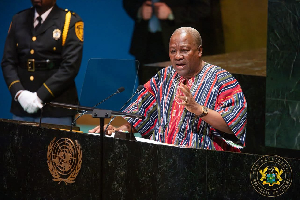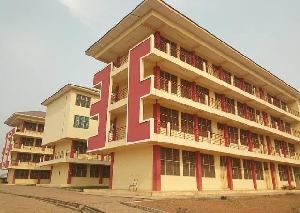A British parliamentary delegation currently in the country on Monday paid visits to some projects under the Accra Metropolitan Environmental Health Initiative (AMEHI) that have benefited from Department For International Development (DFID) of Britain funding.
Mr Tony Baldry, Mr Tony Worthington and Mr Tony Colma, who are part of members of the International Development Select Committee of the UK parliament, visited the Maamobi Polyclinic, the Millennium Peace and Harmony Base, both at
Maamobi and the Salaga Market at James Town to have a first hand knowledge about how the DFID-funded projects were being implemented.
The British government, through DFID provided about 5.7 billion cedis to AMEHI, an Accra Metropolitan Assembly initiative that aims at building partnership between the AMA and the Communities it serves.
The initiative, which is a process of people and organisations working together for a healthier city and environment, is being implemented in five pilot areas; James Town, Usher Town, Sukura, West Maamobi and Old Teshie, all low-income and high density areas within the Accra Metropolis.
Mr Solomon Ofei Darko, the AMA Chief Executive, said the provision of about 5.7 billion cedis by the DFID to AMA/AMEHI for the improvement of environmental sanitation in the metropolis was a clear testimony of Ghana-Great Britain co-operation. He said in the assembly's quest to improve environmental health conditions within the city, AMEHI has become an indispensable process.
Mr Darko said the AMA over the years had encountered enormous difficulties in keeping with its mission statement of "improving the living conditions of the people in the metropolis by providing and maintaining basic facilities and services in the areas of education, health, sanitation and other social amenities." The management of the city's waste, with a population growth rate of 4.2 per cent, had been met with enormous difficulties, he said.
The situation, Mr Darko had said culminated in deplorable sanitation conditions especially in low-income areas, hence the institution of AMEHI to operate on five pilot areas. "We have achieved great strides since the inception of AMEHI, through increased community awareness of environmental risk, increased community action to improve sanitation and increased communication and co-operation between community and local government as in the case of AMA."
General News of Tuesday, 5 March 2002
Source: gna
British MPs delegation inspects projects
Entertainment











